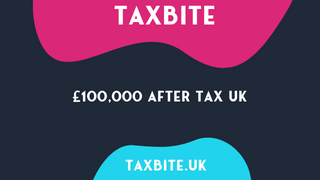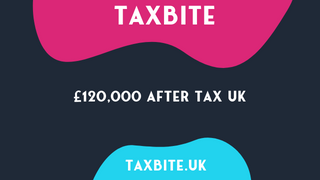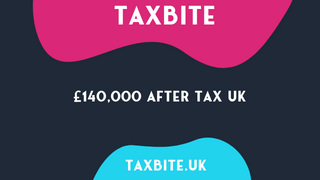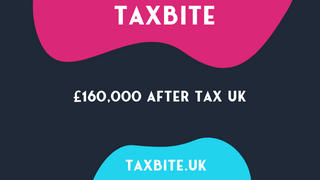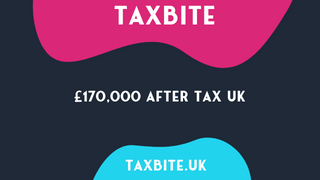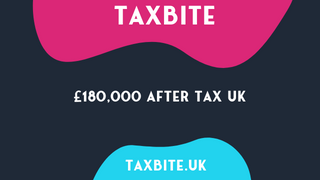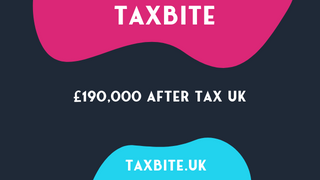Earning £110,000 in the UK may seem promising, but it’s important to understand the tax deductions that come with it. Understanding the tax calculation is essential to avoid any surprises. In this section, we will dive deep into the breakdown of income tax and national insurance deductions that come along with earning £110,000. We’ll also discuss the difference between gross and net income.
Gross income is the full amount of money you make before any taxes or deductions. Net income is what you get after subtracting taxes and deductions. It’s important to know both figures for financial management.
Taxes and national insurance (NI) are subtracted from gross income to determine net pay. The rates depend on income level and job type. It’s wise to understand the breakdown of your tax deductions.
Bonuses and extra income can also affect your net pay. Your personal allowance and marginal tax rates come into effect, potentially exposing you to a high rate of tax.
Online tax calculators can help you estimate your take-home pay. Input your income details in the calculator for an accurate estimation.
Maximizing your net pay and planning for the future requires wise investing, smart saving, and budgeting. With careful planning and discipline, you can obtain financial health.
Tax laws are subject to change, so stay updated. For tailored advice, consult a professional financial advisor.
Understanding income tax and national insurance deductions is vital for good financial planning. As gross income increases, so does the liability for taxes and insurance contributions. To understand these deductions, consider factors like personal allowances, marginal tax rates, and taxable benefits.
A table showing income brackets and their corresponding tax rates can help to comprehend deductions. For example, if an individual earns £110,000 in the UK, they will be in the highest tax bracket of 45%, with a 2% national insurance rate. This means their net income after all deductions will be lower than their original pay.
Bonuses and other income sources can also affect tax liability. Use online calculators and stay up-to-date with tax law changes that could affect finances.
To secure financial future, have good financial planning and decision-making. Saving, investing, and budgeting wisely can help to maximize net income. Knowing about policy changes in taxes and insurance rates and taking steps to optimize finances, can aid in life events such as retirement or property purchase.
Act now to take advantage of enhancing net income and avoid problems from inadequate financial planning. A comprehensive understanding of income tax and national insurance deductions is invaluable to plan finances accurately and make informed decisions.
Positive news, such as increased income and bonuses, can provide more spending power. However, it is important to consider how much of that extra income goes into your pocket after taxes. In this section, we will examine the impact of additional income and bonuses on net pay. We will explore personal allowances and marginal tax rates, as well as the 40% highest tax bracket (rather than the incorrect statement of a 60% tax rate). By understanding these figures, we can help you keep more of your paycheck. Additionally, we will guide you through the use of online tax calculators to accurately calculate your tax obligations.
In the UK, everyone is eligible for a Personal Allowance. This is the sum of income you can earn before being taxed. The Personal Allowance for 2021-2022 is £12,570. Marginal Tax Rates apply to different tiers of income. These rates range from 0% to 45%.
For people earning over £100,000, their Personal Allowance decreases with additional income. It goes to zero when their income reaches £125,000. People earning between £100,000 and £125,000 may face a 60% effective marginal income tax rate because of the reducing allowance.
Every pound earned above £100,000 but below £125,000 results in a deduction of the existing personal allowance. This means they pay taxes at a higher rate than normal. So, it’s important for high earners to understand Marginal Tax Rates and the effect on their allowance.
To reduce taxable income, people earning this amount of money can take advantage of options like maximizing pension contributions or investing in EIS or Seed EIS investments.
For an easier tax calculation, people can use online tax calculators. No PhD in maths required!
Online tax calculators can be a great help for people in the UK to understand and manage their taxes. Make sure to find a reputable and up-to-date calculator. Here’s a guide on how to use them:
Maximizing your net pay requires careful financial planning, but it’s achievable with the right strategies. This section offers advice on budgeting, investing, and saving to help you take control of your financial future. Learn how to make the most of your money and maximize your net pay by £110,000 after taxes in 2023.
Gaining control of your financial future is key for financial wellness. Investing, saving, and budgeting are crucial. Invest in stocks, shares, and property for potential returns – but remember to diversify to reduce risk. Analyze your situation and seek advice before investing.
Saving money is key for financial planning. Minimize utility bills and look for deals to maximize savings.
Budgeting is important. Allocate income or save for the future. It helps identify areas for reduction without sacrificing quality of life. Practicing smart habits can lead to financial stability. So, take control of your financial future!
Optimal financial health is key. But making informed decisions is equally important. People must know how to use their income wisely and understand their financial health. The Reference Data predicts an income of £110,000 after tax by 2023.
To get financial health, people should:
Managing finances is just the beginning. It’s also crucial to stay alert of changes in the economy. Inflation rates and other economic factors can affect financial planning, so it’s essential to stay up-to-date.
In summary, making informed decisions about financial health is essential. Now is the perfect time to plan for a secure future with the predicted £110,000 income by 2023. By taking the right measures, setting budgets, and educating ourselves on the economy, we can have optimal financial health and make the most out of our income. Don’t miss out on this opportunity to secure a prosperous future.
The take-home pay for someone earning £110,000 in the UK varies depending on the tax year and individual circumstances. For tax year 2019/2020, the net pay would be £71,635 annually or £5,970 per month, after a tax deduction of £38,365, assuming the individual is younger than 65, unmarried, and has no pension deductions, childcare vouchers, or student loan payments. These figures may differ in other tax years.
The marginal tax rate for someone earning £110,000 in the UK is 43.3%. This means that any additional income above this threshold will be taxed at this rate.
When income exceeds the personal allowance, which is £12,570 for the tax year 2023/2024, it reduces by £1 for every £2 of income above £100,000. This means that someone earning £110,000 will lose £5,000 of their personal allowance. As a result, an extra £10,000 of taxable income (at 40%) will result in an additional £4,000 of Income Tax, leading to an effective Income Tax rate of 60% for income above £100,000 and up to £125,140.
A £1,000 bonus will generate an extra £568 of net income for someone earning £110,000 in the UK, based on the reference data provided above.
The tax calculator on reed.co.uk helps individuals calculate their Income Tax and National Insurance deductions from their salary. Users simply need to enter their salary to view their tax deductions and take-home pay, which are calculated based on various tax years. The calculator provides information on tax deductions per week, per month, and per year.
The website nutmeg.com calculates tax results based on input fields through a feature that updates the results automatically when details are added and the calculate button is hit. The results appear to the right or below the input fields depending on the calculation. The calculator calculates how much income tax and national insurance will be paid and what the take-home pay will be.
Here’s a list of similar salaries:
